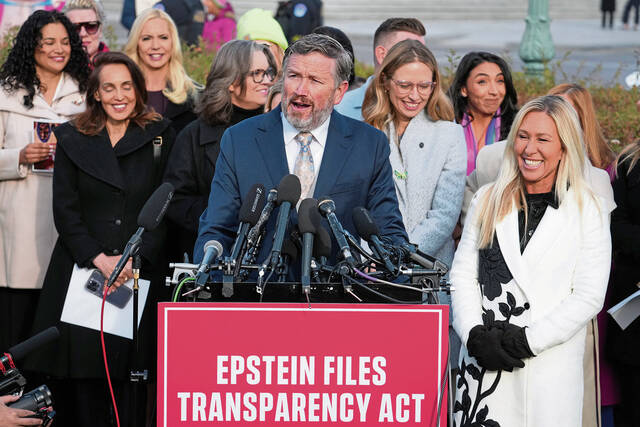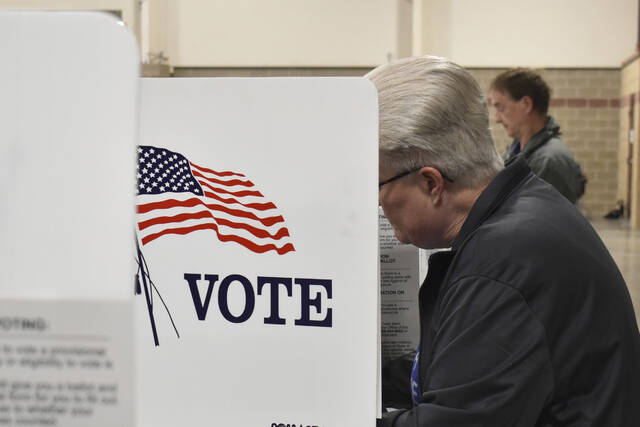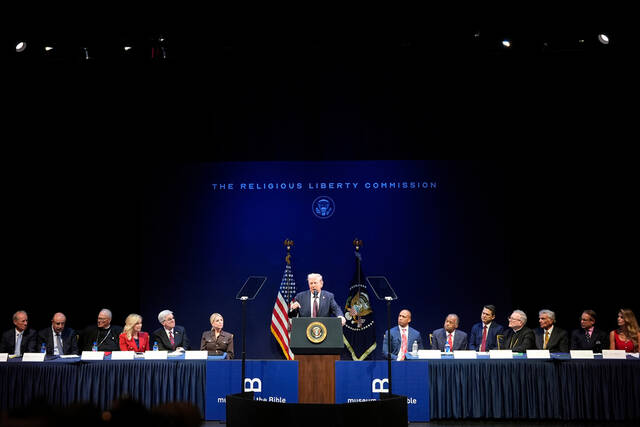The opioid epidemic has left few communities in Pennsylvania unscathed. It has stolen lives, fractured families, overwhelmed emergency services, and put unbearable pressure on county and municipal budgets. Westmoreland County is certainly no exception. So when the opioid settlement funds began to flow as part of a national reckoning with the pharmaceutical giants who fueled this devastation, there was hope that real, restorative change was on the horizon.
But as the details of Pennsylvania’s use of these funds come into focus, it is clear that justice is being shortchanged.
Specifically, under Exhibit E of the Pennsylvania Opioid Misuse and Addiction Abatement Trust’s guidelines, counties and municipalities are not allowed to use settlement funds to recover costs associated with the administration of justice. This includes courts, public defenders, prosecutors, probation officers, jails and other legal infrastructure that have borne the brunt of this crisis for decades.
An informal study conducted by Westmoreland County in 2017 estimated that the cost of drug and drug-related crime on county government was about $19 million, or approximately 5 mills of property taxes.
While public health efforts — such as treatment, prevention and harm reduction — now being funded by the opioid settlement are absolutely vital, Westmoreland County has spent millions managing the legal consequences of addiction. Those arrested and cycled through the courts for possession, our drug court created to provide alternatives to incarceration, and the families navigating custody battles and child welfare cases tied to opioid use — all are part of the real cost of the crisis.
Yet the very systems that were stretched to the breaking point are being told to make do without a share of the reparations. This is not just a bureaucratic oversight. It is a policy failure.
The argument behind excluding justice system costs is that the settlement is about healing, not punishment. That is a noble sentiment, but it disregards the way the criminal justice system has been used for decades as the frontline response to addiction. Counties did not choose to become the de facto managers of addiction. They were forced into that role by state and federal policy that criminalized drug use rather than treating it as a public health issue.
Now, when funding finally arrives to repair the damage, it is as if those costs never existed.
Westmoreland County’s district attorneys and public defenders are handling massive caseloads tied directly to opioid-related offenses. Court dockets are dominated by drug-related crimes. The county jail is full of opioid-related offenders. And the probation department is tasked with supervising people with high levels of need and few resources. These systems need staffing, training and innovation — much of which is unfunded.
Westmoreland County has implemented innovative justice reforms specifically in response to the opioid crisis: diversion programs, a drug court and collaborative law enforcement-health initiatives. Ironically, some of these very programs may not qualify for reimbursement or support under the current restrictions.
When counties can’t use settlement funds to support these efforts, they must either divert local tax revenue or cut services elsewhere.
The exclusion of justice-related costs also undermines the principle of accountability. If the settlement is truly meant to make communities whole, then every part of the community affected must be eligible for relief. A courtroom overloaded with drug cases is no less a victim of the crisis than an emergency room overwhelmed with overdoses.
Pennsylvania’s Trust structure has the power to amend Schedule E and expand the definition of allowable expenses. It should do so immediately.
Westmoreland County deserves the flexibility to use these funds in the way that best addresses our unique needs, including shoring up the legal and justice systems that have paid an unacknowledged cost for too long.
The opioid epidemic blurred the line between public health and criminal justice. The settlement response must reflect that complexity. By barring counties and municipalities from using funds to recover costs tied to the administration of justice, we are effectively writing certain victims out of the recovery narrative.
It is time for Pennsylvania to revise Exhibit E so that all parts of our communities, including our overburdened justice systems, get the support they need to heal. We call upon elected state and county and municipal leaders statewide, to join us in this effort.
We should be repairing harm, not rewriting history.
Ted Kopas, a Democrat, is Westmoreland County commissioner. Jeff Balzer, a Republican, is Westmoreland County controller.








